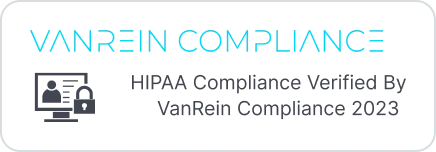Missed Calls & Language Barriers in Healthcare | Patient Connect
Compared to all the other headaches hospitals and other medical facilities deal with daily, missed calls and insufficient staff who speak different languages might seem trivial. But if you dig a little deeper, you'll see these issues can actually cause some pretty serious problems.
Constantly ringing phones can hit your budget and reputation hard, not to mention how they burn out your staff and bump up illness reports. Plus, only having English-speaking staff makes it tough to communicate with an increasing group of patients who don't speak English, which can mess with the quality and cost of care.
The good news? Fixing these problems might be easier than you think. Just wait till you get to the bottom.
Missed Calls: An Upsetting Distraction
Medical facilities miss 20% to 42% of incoming calls during business hours. If your hospital or clinic gets 800 calls a day, that’s like missing from 160 to 336 patient calls daily!
This isn't just about phone calls—missed calls mean missed appointments and delayed care. Plus, long hold times really frustrate patients, making them feel like your service isn't up to par and even pushing them to look for other healthcare options.
Yet, the problem extends beyond missed calls.
Phones that keep on ringing give your staff a headache. And that’s not a far-fetched statement. Studies have shown that unexpected rings can really throw things off. Research suggests that even the mere sound of a ringing phone can jack up stress levels, triggering an increase in electrodermal activity (EDA), a stress marker, in individuals focused on other tasks.
Medical interns, in particular, are highly susceptible to stress from frequent phone usage. An estimated 60% of medical interns experience phantom vibrations, and 42% experience phantom ringing, symptoms of an unhealthy relationship with their smartphones. This phenomenon correlates with higher perceived stress levels, indicating that frequent phone interruptions cause stress and anxiety among medical professionals.
Chronic exposure to these stressors can impair decision-making, reduce efficiency, and ultimately degrade the quality of patient care. To mitigate these issues, your facility can employ remote healthcare receptionists to handle administration and reduce missed calls. This allows on-site staff to remain focused on patient care, minimizing the stress and distractions caused by persistent phone ringing.
If your hospital or clinic gets 800 calls a day, that’s like missing up to 336 patient calls daily!
Language Barriers: A Threat to Personalized Patient Care
Over two-thirds (66.7%) of non-English speaking patients in the U.S. face significant hurdles in accessing medical care. They feel stressed about potential misunderstandings and not receiving adequate care. Medical jargon is often difficult to understand in the native language, so you can imagine the struggle limited English speakers experience during routine doctor appointments.
Studies reveal that language barriers between patients and healthcare providers lead to problems like not following treatment plans, less access to health information, worse health results, and lower patient satisfaction. This can jeopardize patient safety and trust. Shockingly, 37% of doctors say patients often keep crucial information from them due to language barriers.
Moreover, offering patients care in their respective languages is mandatory. Affordable Care Act (ACA) regulation mandates healthcare facilities to communicate effectively with patients with disabilities and limited English proficiency. Non-compliance with these regulations can result in penalties and legal challenges, adding to the financial and reputational risks medical facilities face.
Despite these legal requirements, many healthcare providers still fail to accommodate non-English-speaking patients adequately. Remote healthcare receptionists can effectively alleviate these constraints, whether due to limited funds or staff shortages.
By providing multilingual support, scheduling experts ensure patients receive clear and accurate information, reducing no-shows and enhancing patient satisfaction. This service is particularly vital in areas with diverse patient demographics, where language barriers are more likely to pose significant challenges.
Over two-thirds (66.7%) of non-English speaking patients in the U.S. face significant hurdles in accessing medical care.
A Remedy for Patient Communication Problems
Language barriers and insufficient front-desk management, which leads to missed calls, are the main culprits behind patient communication problems. However, specialized remote healthcare receptionists can help you overcome these issues. They ease the stress on your staff and ensure top-notch patient experiences.
Reducing missed calls enhances patient satisfaction and practice efficiency, especially with EHR Patient Scheduling Services, Medical Insurance Verification Services, and Patient Portal Support. These solutions ensure seamless call handling, accurate scheduling, and improved patient engagement.
Want to know how? Watch this quick video to see how healthcare receptionists tackle non-stop phone calls and support patients in other languages. Or 💬 reach out to our team now if you want to learn more and solve patient miscommunication for good!
Epic-Integrated Scheduling: Your Secret to Happier Patients and Smoother Operations
HIPAA-Compliant Scheduling: Your Key to Trust, Efficiency, and Profit
-Mar-02-2024-10-02-28-4279-AM.webp?length=1920&name=image%20(2)-Mar-02-2024-10-02-28-4279-AM.webp)
Subscribe to Our Newsletter
Join Patient Connect newsletter to get fresh updates on time.
-Mar-02-2024-10-02-28-4812-AM.webp?length=1920&name=image%20(1)-Mar-02-2024-10-02-28-4812-AM.webp)

